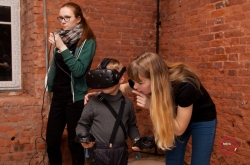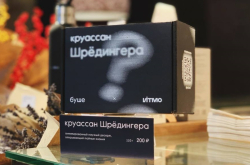What is FRU
The French-Russian University was established in January 2016 after the 21st session of the Franco-Russian Economic, Financial, Industrial, and Trade Council (CEFIC). Emmanuel Macron, who was then Minister of Economy, Industry and Digital Affairs of France, signed the protocol.
The FRU was founded by eight universities: four from Russia and four from France. From the French side, these are the three leading business schools in France, EDHEC, SKEMA and NEOMA, as well as the Université Nice Sophia Antipolis (UNS), a multidisciplinary university located in Nice and the center of the Sophia Antipolis technological cluster.
Moreover, the UNS is a part of Université Côte d'Azur, one of the ten French educational institutions selected to implement the government “Initiative of Excellence” (IDEX) program, which is similar to the Russian “Project 5-100”.
On the Russian side, the founding institutes are Moscow Engineering Physics Institute, the People’s Friendship University of Russia (RUDN University), Russian Presidential Academy of National Economy and Public Administration under the President of the Russian Federation (RANEPA) and Russian Foreign Trade Academy Ministry of Economic Development of the Russian Federation (RFTA).

The main goal of the FRU is to develop the necessary human resources in the interests of scientific and technological progress, as well as to promote national innovation. The tasks include increasing the number of highly qualified personnel for joint Russian-French enterprises, expanding trade and strengthening economic ties, increasing academic mobility and involving Russian and French businesses in educational projects.
The project is coordinated by the FRU Council, whose meetings take place two or three times a year. Annually, the FRU presents the results of its work at the CEFIC meetings and the Russian-French commission on cooperation in the field of culture, education and youth exchange.
In May 2018, the fourth meeting of the FRU Council took place at the St. Petersburg International Economic Forum (SPIEF). Vladimir Vasiliev, Rector of ITMO University, and Daria Kozlova, first vice rector, also took part in the meeting. After this meeting at the SPIEF-2018 and the visit that the FRU members paid to ITMO, the university became one of the official participants of the consortium.
New opportunities
The FRU is a platform that allows participants to implement joint initiatives in the field of science and education.

For students and professors
The consortium creates a range of opportunities for training students and professors, as well as expands the opportunities for academic exchange.
The FRU is developing a network at all levels of university studies, including multidisciplinary educational programs. The framework also allows creating programs not only with educational institutions but with industrial partners and representatives of the corporate sector. Such programs can benefit both individual companies and whole sectors of economy.
Moreover, the consortium is also involved in organizing short-termed educational programs, including summer schools, as well as professional internships and student practices.
ITMO University is planning to establish cooperation in the educational sphere with all participants of the consortium from the French side, says Elena Shumeyko from the International Educational Programs Department. Joint student exchange programs will serve as a beginning of new partnership relations. ITMO is already negotiating with the SKEMA Business School. Fintech is one of the promising areas of cooperation.

SKEMA researchers are already developing projects in this area. ITMO, in turn, has also established ITMO.Fintech within the School of Translational Information Technologies powered by International Banking Institute. Today, ITMO.Fintech has two Master’s programs, both in partnership with commercial banks and financial software developers and conducts various scientific research projects.
One other promising cooperation area is organizing summer schools for French and Russian students. Work in this area will start in 2018 and the first schools will run in spring and summer of 2019. In the future, double-degree programs may also become an area of interest for the consortium.
For researchers
Apart from developing educational areas, the FRU is engaged in establishing scientific cooperation. The FRU members are interested in launching joint scientific research projects and scientific conferences, filing joint applications for international scientific grants, and publishing joint articles. In addition, the FRU’s list of activities includes translating and publishing scientific articles.

ITMO University has already started working with the Université Nice Sophia Antipolis, but being a FRU member can help expand scientific cooperation with this university, adds Elena Shumeyko. The university has eight departments, two institutes and an engineering school and is located in the center of one of the leading technological clusters in France. Today, the cluster is conducting research in the field of IT, electronics, biology and pharmacology and includes units of such companies as HP, IBM, Texas Instruments, Oracle, Infineon, Cisco, Nortel Networks, Accenture and many others.
The two universities are planning to cooperate in the field of technological entrepreneurship, urban studies and organize Smart City research projects.
It is worth noting that ITMO University has been developing multi-format cooperation with French universities for several years already. The cooperation is established in various educational and research projects and is financed both by universities themselves and by various international grant programs, such as Horizon 2020 and Erasmus +.
Translated by Pavel Vorobyev




